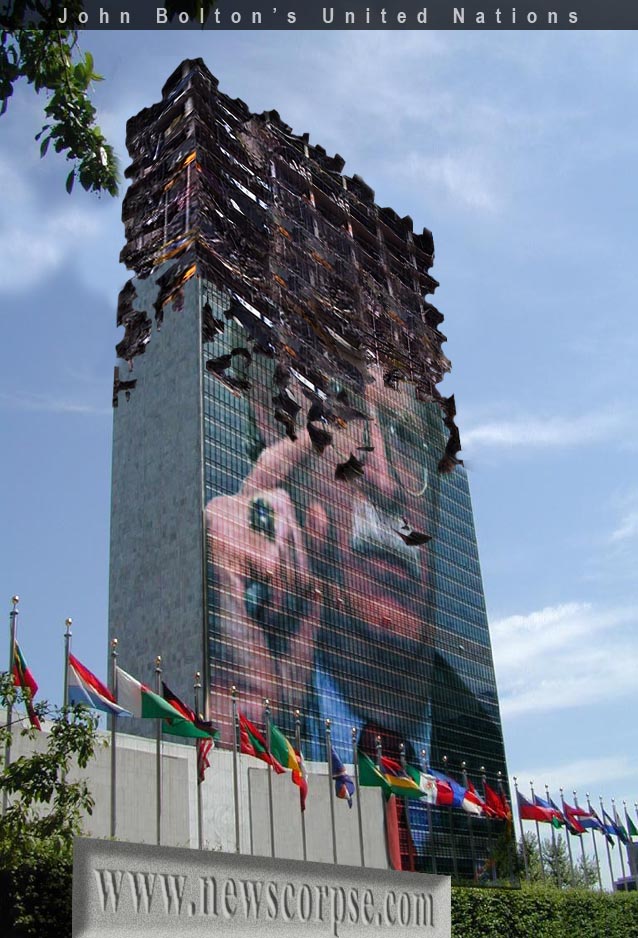

|
Your Most Trusted Source of Foreign
News and Views About the United States
|

August 5, 2005
Original Article (English)
Taking advantage of a Congressional recess,
President George W. Bush on August 1 forced through the appointment
of controversial hawk John Bolton to be
Fifty-six-year-old and a graduate of Yale law school, Bolton was Bush’s schoolmate. During the disputed 2000 presidential election, Bolton, was a "capable" member of the Bush legal team and performed meritorious service in winning a lawsuit for Bush. After Bush moved to the White House, Bolton was appointed Under Secretary of State for Arms Control and International Security.
At the State Department, Bolton emits a hawkish air. Many people claim that he is "too haughty, and abuses his power to bully others," that "he has never been on good terms with his former superior Colin Powell" and that he has the "bad habit of coercing and retaliating against his subordinates."

In handling international relations, he
always plays hardball. He once professed that the relationship between the
Due to the behavior of this, "by no
means good and honest person," as he has been dubbed by the
His opponents have two main complaints.
First, the conduct of this fellow is problematic, and second, this man is
too "hawkish" and is therefore not suitable for the post. In the
opinion of his opponents, the main task for the new
Under the circumstances, to achieve his own goals Bush could not but take advantage of the Congressional recess and legally bypass the Senate. The unusual move is an exception in the history of the United Nations.
Why does Bush want to appoint Bolton so badly? The main reason is that as Bush's "loyal ally," Bolton can guarantee that Bush's foreign policy will be resolutely implemented in the United Nations.
In a sense, what people oppose in regard
to Bolton is precisely what Bush needs. During Bush's first
term, the
To tame the United Nations, it is imperative [for Bush] to send a "strong man." When he accepted the appointment, Bolton indicated in an undisguised manner that he would spare no effort in promoting U.S. values at the United Nations, and make it serve U.S. interests.

Experts say the timing of Bolton's appointment is by no means accidental, with the
Of course, Bush's forced appointment of
Bolton once again sends this signal to the world: The United
States will continue to pursue a tough foreign policy and will not stop acting
unilaterally. In a statement, members of the U.S. Democratic Party say that
while Bush is pushing democracy around the world, he bypasses Congress and
turns his back on
Someone described the appointment as Bush releasing a "hawk" to the United Nations. Bush most likely seeks greater control and use of the U.N. But will the formidable U.N. become unfailingly obedient to the White House? With regard to the appointment of Bolton, U.N. Secretary General Kofi Annan, while courteously welcoming him, said bluntly, “As a country's ambassador, he should always bear in mind, that there is still the need to consult with 190 other members, and actions can be taken only with the consent of the overwhelming majority.”
Of course, people still need time to observe
Bolton and can even hope that he will reorient himself in
a "dovish" direction. Otherwise,